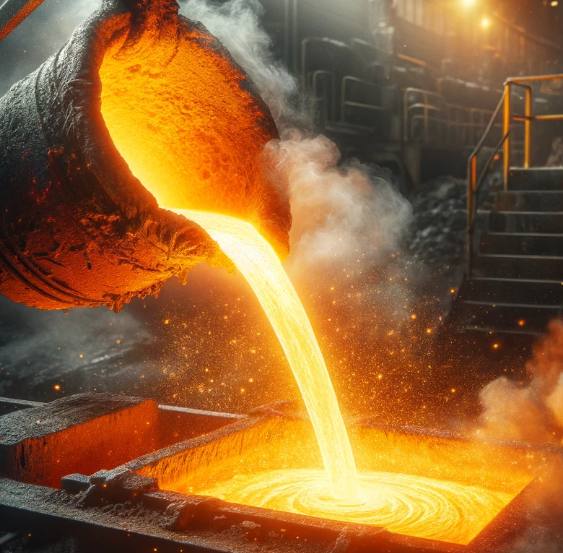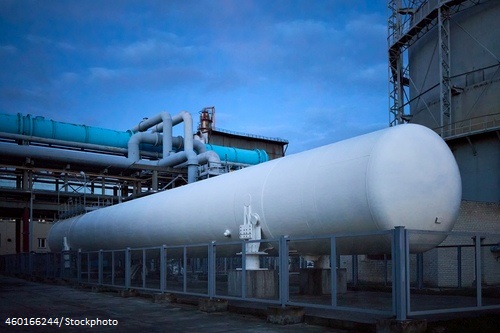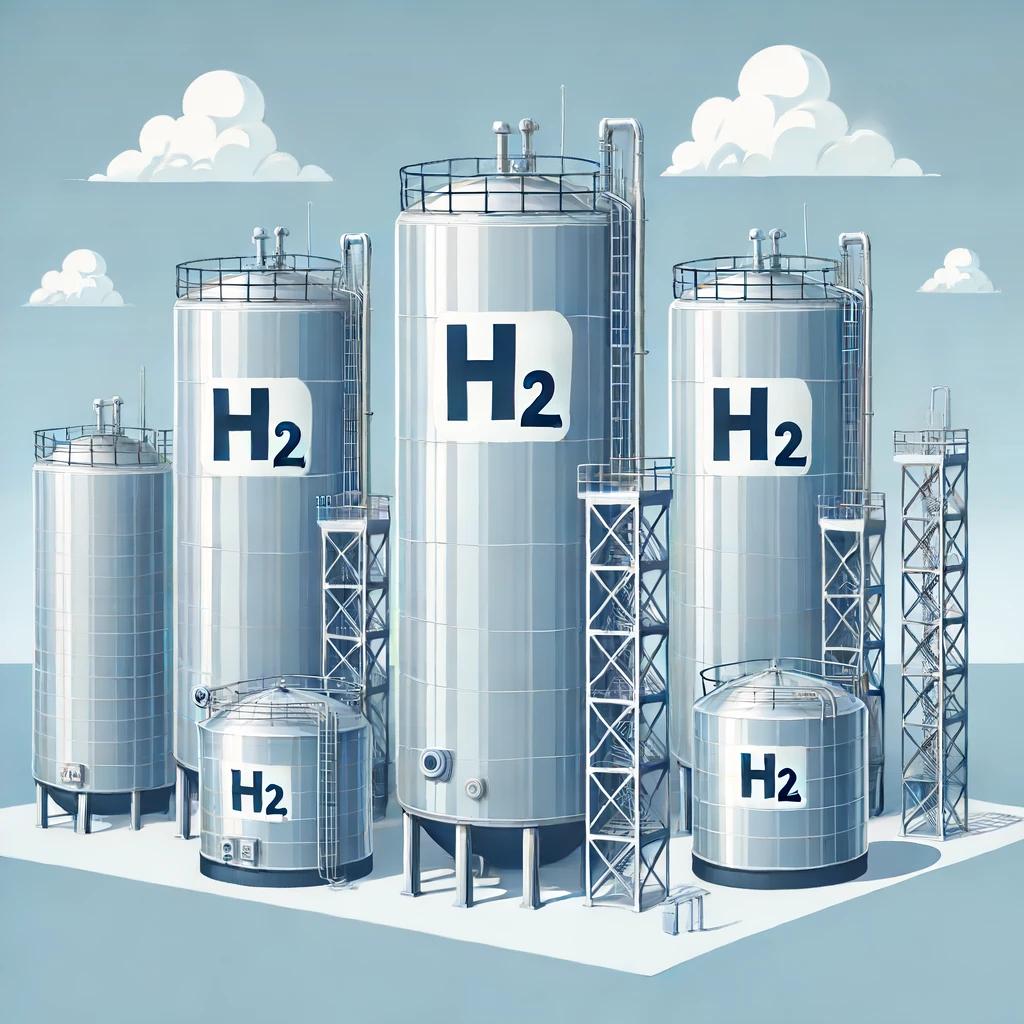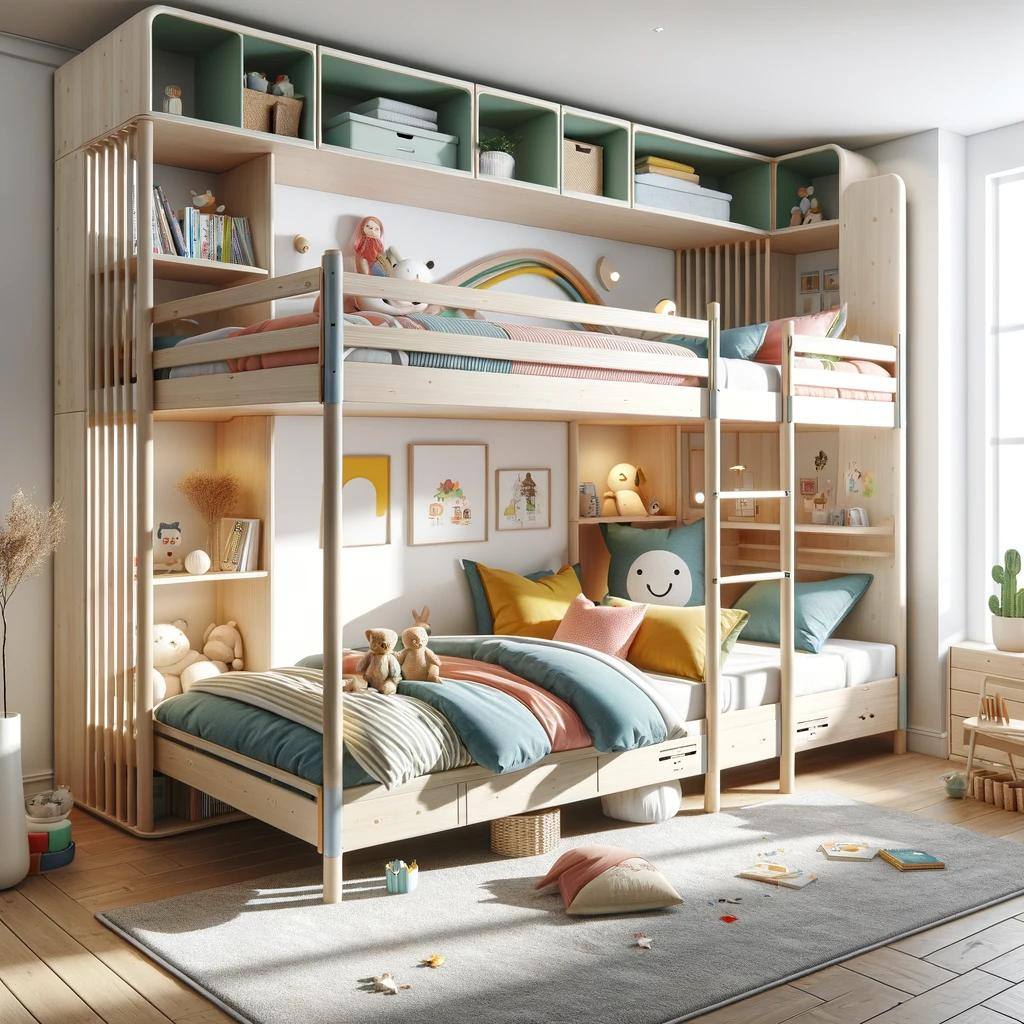POSCO revamps and restarts Furnace with Smart Technology
POSCO, the world’s seventh-largest steelmaker, has restarted its No. 4 blast furnace at the Pohang Steel Works in South Korea after a significant upgrade. The more than $380 million investment introduced a smart system powered by deep learning to enhance productivity and reduce costs. This system allows the furnace to predict outcomes and self-regulate. Heavy industrial machines such as used in steel works often require KCs certification, in order to be approved for sale and use on the Korean market.

POSCO hopes for the furnace to bolster the company’s long-term competitiveness. The revamp included replacing old equipment and improving the cooling method, increasing the furnace’s efficiency. The furnace, with an internal volume of 5,600 cubic meters, has been operational since 1981 and underwent major renovations in 1994 and 2010. Steelmakers typically renovate furnaces every 15 years to maintain their operational cycle.
Feel free to contact us any time if you need assistance or have any questions regarding Korean certifications like KC, KC EMC, KCs, KCs for explosion safety products or KGS factory registration.
Tel. Europe: +49-69-271 37 69 261
Tel. US: +1 773 654-2673
Email: info@korea-certification.com
For more information you can download our free brochure “Korea Certification Made Easy – The Booklet“.
Seoul and Yeongcheon to initiate Hydrogen Production from Biogas Projects
Seoul and Yeongcheon in North Gyeongsang Province are launching pioneering projects to produce hydrogen from biogas, marking a significant step towards sustainable energy. These projects will convert organic waste like livestock manure, food waste, and sewage sludge into renewable energy, supporting carbon neutrality and local hydrogen self-sufficiency. Products involved in hydrogen production such as pressure vessels usually require KGS Certification in order to be approved for import and sale on the Korean market.

The Ministry of Environment, Korea Environment Corporation, Yeongcheon city, and private company EcoBio Holdings have signed a memorandum of understanding on April 4 to facilitate hydrogen production from biogas.This partnership highlights the collective effort of government, local, and private sectors to leverage sustainable energy technologies.
Yeongcheon, designated as a biogas-based hydrogen producer this year, aims to produce around 500kg of hydrogen daily from 4,000Nm³ of biogas at the Integrated Biogasification Facility in Geumho-eup, enough to power approximately 100 hydrogen-fueled cars per day.
EcoBio Holdings will similarly produce hydrogen in Seoul’s Gangseo District at the Seonam Water Recycling Center, using sewage to match Yeongcheon’s hydrogen output. Both projects plan to complete facilities by 2025, with hydrogen production starting in 2026.
This initiative follows the successful biogas-based hydrogen production precedent set by Boryeong in South Chungcheong Province and Hyundai Motor Company.
Feel free to contact us any time if you need assistance or have any questions regarding Korean certifications like KC, KC EMC, KCs, KCs for explosion safety products or KGS factory registration.
Tel. Europe: +49-69-271 37 69 261
Tel. US: +1 773 654-2673
Email: info@korea-certification.com
For more information you can download our free brochure “Korea Certification Made Easy – The Booklet“.
Samsung C&T to construct Korea’s first Power Plant Hydrogen Tank for over $100 Million
Samsung C&T Corp., part of South Korea’s Samsung Group, has secured a 140 billion won ($103 million) contract to develop Korea’s first coal and hydrogen compound-fueled power generation infrastructure. The project, awarded by Korea Southern Power Co. (KOSPO), involves constructing a 30,000-ton tank to store and manage hydrogen compounds at KOSPO’s Samcheok plant in Gangwon Province. Pressure vessels and similar equipment related to the hydrogen industry generally require KGS approval to be imported and distributed in Korea.

Samsung C&T will handle the engineering, procurement, and construction (EPC) of the project, which is set to complete by July 2027. This includes a double-wall sealed tank to enhance safety, high-level gas detection and blocking systems, and a real-time environmental monitoring system.
The project aims to use carbon-free hydrogen compounds for 20% of KOSPO’s fuel mix, helping reduce greenhouse gases by 1.1 million tons annually. Samsung’s selection for this project is attributed to its expertise in global energy storage facilities and its collaboration with Whessoe Engineering Ltd., a UK-based specialist.
Samsung hopes this project will bolster its participation in future renewable energy initiatives both domestically and internationally.
Feel free to contact us any time if you need assistance or have any questions regarding Korean certifications like KC, KC EMC, KCs, KCs for explosion safety products or KGS factory registration.
Tel. Europe: +49-69-271 37 69 261
Tel. US: +1 773 654-2673
Email: info@korea-certification.com
For more information you can download our free brochure “Korea Certification Made Easy – The Booklet“.
Carcinogens detected in Children’s Products, Shopping Apps under Investigation
South Korea is scrutinizing certain online shopping platforms after discovering carcinogenic substances in some children’s products, raising concerns about the safety of these goods. The Seoul Metropolitan Government announced that its recent inspection of 31 best-selling children’s items and daily necessities on various platforms found that eight contained hazardous substances that were well above the allowable levels. Products such as swimming floats, baby walkers and teethers were among the items that posed significant health risks. In particular, leather bags for children contained phthalates, with the values exceeding the limit by more than 50 times. Products and components relevant to toys and other children’s products typically require KC Safety Certification to be approved for import and use in the Korean market.

One of the phthalates, DEHP, is classified as carcinogenic by the International Agency for Research on Cancer (IARC). These plasticizers can cause infertility, according to the IARC. Additional risks have been identified with other products, such as swimming floats that are thinner than the minimum requirements of the Korean government, and teethers with design flaws that can lead to choking.
A government official said Seoul will regularly inspect the shopping platforms to assess product safety and consumer protection measures. In addition, a consumer reporting centre will be set up to deal with complaints about counterfeit or dangerous products, and to punish serious violations or report them to the police.
Feel free to contact us any time if you need assistance or have any questions regarding Korean certifications like KC, KC EMC, KCs, KCs for explosion safety products or KGS factory registration.
Tel. Europe: +49-69-271 37 69 261
Tel. US: +1 773 654-2673
Email: info@korea-certification.com
For more information you can download our free brochure “Korea Certification Made Easy – The Booklet“.



